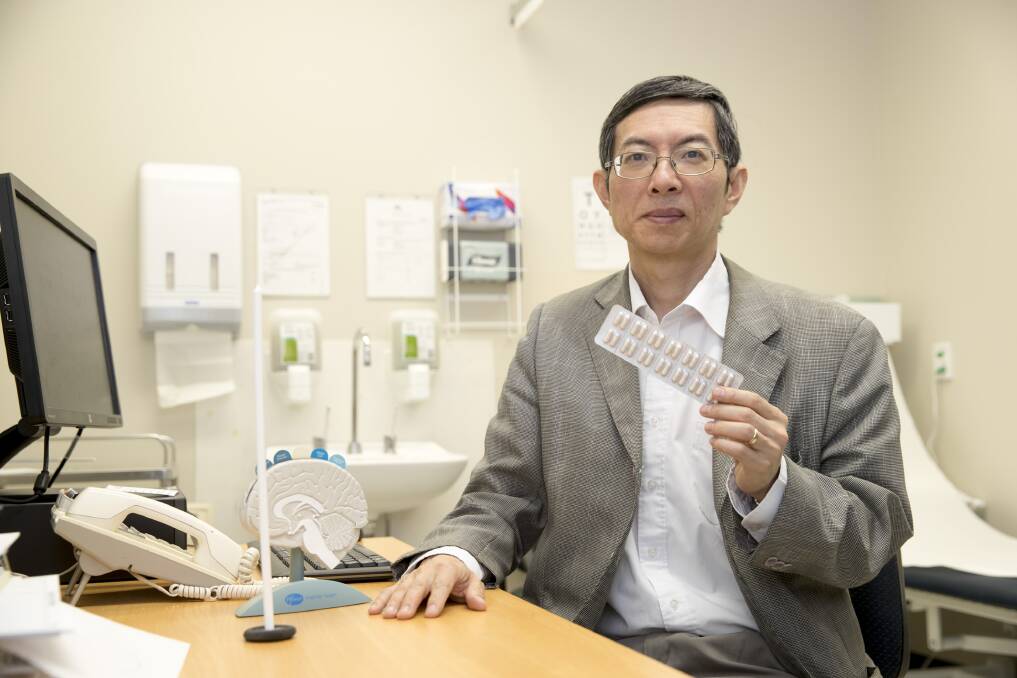A novel herbal medicine treatment may be key to unlocking dementia

This is sponsored content for NICM Health Research Institute.
Researchers are looking for people between 40-85 years of age with a diagnosis of vascular dementia or mixed Alzheimer's and vascular dementia to take part in a clinical trial which could lead to a groundbreaking medical development for treating the disease.
Currently more than 400,000 Australians are living with dementia, with a new case diagnosed every six minutes, and about 20 to 30 per cent of dementia cases are thought to be vascular dementia. But unlike in the case of Alzheimer's Disease, current pharmaceutical options for vascular dementia are lacking.
Recognising this deficiency, a combined team from NICM Health Research Institute, Western Sydney University, and the China Academy of Chinese Medical Sciences have been working together for over a decade to develop a unique, standardised herbal formulation to treat vascular dementia.
They developed Sailuotong (SLT), a complex combination of ginseng, ginkgo and saffron. While the herbs have individually been used in Chinese medicine for hundreds of years, this powerful combination has been studied in the laboratory and clinical trials for the past 10 years.

In a recent Phase II clinical study with 325 participants, a 26-week treatment of SLT was shown to be an effective treatment for mild-to-moderate vascular dementia, with participants demonstrating significant improvements in multiple areas such as memory, orientation, language and daily function.
Chief Investigator of the current Phase III clinical trial, Professor Dennis Chang, from NICM Health Research Institute said if the trial is successful, SLT will be a frontline treatment for thousands of people across the world.
"The results of the peer reviewed clinical trial of SLT will not only help determine the action of this unique modern herbal medication on learning and memory, but confirm its capacity to deliver significant improvements in daily function and quality of life in patients with vascular dementia," he said.
Unlike with pharmaceutical drugs, Professor Chang said a Chinese medicine treatment offers a multi-target approach.
"Pharmaceutical medicine often targets a single therapeutic target of a disease, whereas the potential strength of herbal medicines is they can combine multiple bioactive compounds which work together to address different causes and symptoms of a disease," he said.
"Some improve blood circulation, some improve the neurotransmitters in the brain, some have anti-inflammatory properties, some have antioxidants, and so that actually adds up to an overall effect which may potentially be better than just one drug.
"Natural medicine also tends to be less problematic in terms of causing side effects."
The current trial is being carried out at 12 centres in in Sydney, Wollongong, Canberra, Brisbane, Melbourne and Adelaide, as well as in Northern New South Wales towns including Lismore, Grafton, Casino and Tweed.
Eligible participants will take two capsules of SLT or placebos twice a day for 52 weeks and attend clinical visits so their health can be closely monitored, as well as a post-study follow up visit three months after the conclusion.
At the end of the trial, all patients will receive an additional year of the active SLT preparation.
Those interested in participating in the research trial can phone the hotline on 02 46203578, email dementiatrial@westernsydney.edu.au or visit www.nicm.edu.au/dementiastudy
This is sponsored content for NICM Health Research Institute.


